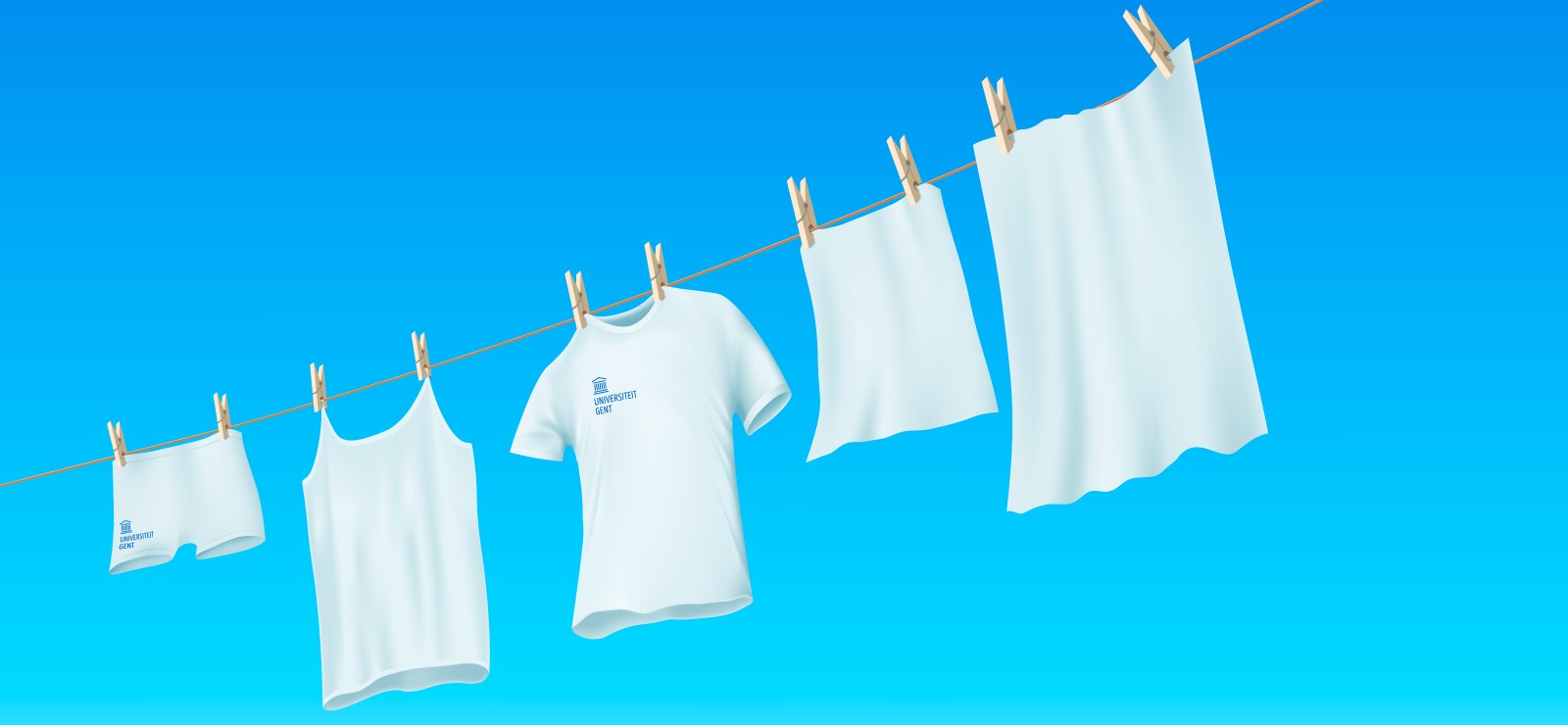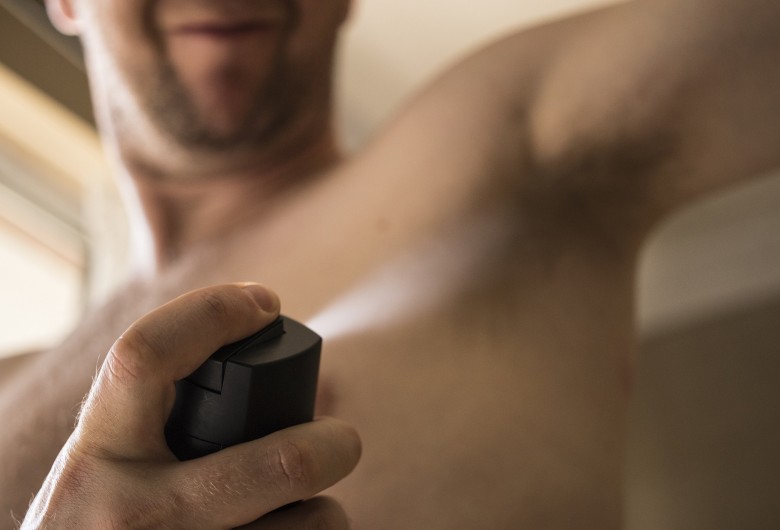Do you change your underwear every day? The chances are that you do. Did you know that this is actually unnecessary? Less laundry but more targeted, that’s the message from Ghent University researcher Chris Callewaert.
Why should we do less washing?
“What’s important is that you consider skin contact. A jumper tends to have less contact with the armpits and therefore with sweat. Therefore, this needs less frequent washing. If you were to wash a jumper every day it would quickly discolour or fray. That is unsustainable, not to mention unnecessary. Personally, I wash my jumpers weekly or even every fortnight.”
A fortnight, isn’t that a long time?
“It’s because we are used to washing textiles so regularly. It has only been like that for the last hundred years. Before that, washing machines didn’t even exist. During the corona crisis we noticed that people started washing their clothes less often. A new outfit every day was pointless during the lockdown. I am now hearing that many people have realised the benefits.”
So we do too much washing. When do you really need to wash your clothes?
“When they smell or you can see dirt, but it’s really up to you. If you consider the rise in the price of electricity, it is better to do less washing. The same applies to bacteria in fact, but it all depends on what makes you feel comfortable. A pair of trousers does not get very dirty from sitting behind your desk all day. So you can easily wear them for a week or more before having to wash them. Underwear, socks and vests absorb more perspiration, flakes of skin and skin grease. They are therefore best washed more regularly, but not necessarily on a daily basis.”

So it’s no problem to wear the same underwear for a few days in a row?
“Not at all. Bacteria don’t accumulate that quickly in just a day or two. But pay attention, I’m not saying that people can’t refresh their underwear on a daily basis (laughs), just that you don’t actually need to. Personally, I don’t change mine every day. Every three days is fine. If you sweat more heavily, then a new set every day is better.”
You often mention odours and bacteria. If textiles smell, does that indicate that there are too many bacteria?
“Bacteria are everywhere, it can’t be avoided. Smell is generally a sign that there’s an accumulation of bacteria. For example, the smell of your clothes if you leave the washing in the machine for too long. That particular odour comes from biofilm-forming bacteria in your washing machine. These convert sweat molecules and skin particles into a musty odour. They don’t necessarily contain pathogens (i.e., disease agents), but who likes smelly laundry? If you want to avoid this, you can do a ‘maintenance wash’. Run your machine at a high temperature and add a little detergent with bleach. It’s good for your machine. A good and fast drying process is important too. For example, you can use a tea towel for a long time, provided it dries properly. Best of all in the sun. UV rays have an antibacterial effect.”
Should underwear always be washed at a high temperature?
“No. In Europe, most people wash at 30 degrees. That is the ideal temperature to activate enzymes in the washing powder. However, 15 to 20 degrees is fine as well, which is what they do in the United States. So if you want to save money on your electricity bill, go for a colder wash.”
Is there never a need for a high-temperature wash?
“Bacteria and viruses, or at least most of them, are destroyed at temperatures above 60 degrees. That is particularly important if you have someone at home who is ill. That is why, in hospitals, they always wash in hot water and use a washing detergent with bleach. That is a very efficient way to kill bacteria. Before the nineties, bleach was added to every wash, at least to the whites. We stopped this habit as it was not particularly eco-friendly. If your son or daughter has a viral infection it is still worth washing with bleach.”
Is it helpful to wash new textiles, such as new towels, before using them?
“This often applies to coloured textiles on which you can find loose colour molecules. This can certainly be the case if the fabrics are coloured with chemical products under poor conditions. These may cause harm to the skin. So it certainly can be worth washing off the remaining substances, although it is not always necessary.”
Sometimes you just can’t get a smell out of your clothes, for instance, under the armpits. What’s the solution?
“That’s when there are bacteria stuck in the fabric. These must be removed in the specific area, by applying a disinfectant that kills bacteria and fungus, such as Dettol, and leaving it to absorb. This has an antibacterial effect and will remove the odour. The key is to act locally, also in the case of sheets. If you wear pyjamas and you don’t perspire significantly you don’t need to change your sheets every week. Even so, it is advisable to replace your pillow case more frequently, and certainly if you suffer from acne.”
Can anything be done to prevent odours?
“Not for the moment. We are working on solutions, but further investigations are needed. For example, for people who soon suffer from smelly armpits. We would like to help them by developing probiotic clothing. I am working with textile scientist Rosie Broadhead to find a way to use bacteria that counter body odour in the armpit region of clothes. The early results are very promising.”
Soon nobody will smell bad?
“(laughs) That’s the intention.”
Read also
4 tips for a summer without the sweaty smelliness
Sweating without the annoying smell? In fact, it’s possible! Much is to do with the bacteria living under the armpit. Chris ‘Doctor Armpit’ Callewaert explains.
Read also
This is how to avoid parasites on holiday
Holidays! You're already looking forward to all the delicious things you'll eat while travelling, but wait ... Can you just eat anything? "There are some foods that you need to be a bit careful with.” Professor Sarah Gabriel tells us how to avoid taking an extra passenger back home
Revolution in plastic surgery: human tissue rolls out of printer
Creating new pieces of bone, muscle, skin or fat with a 3D printer to heal injuries. Sounds futuristic? The first steps are already being taken today! We spoke with plastic surgeon and professor Phillip Blondeel about his research into tissue engineering.
Most skin cancers can be prevented: protect yourself from UV with these 4 tips
Sunshine and holidays equal a tanned skin for many. But we need to adjust our ideas about tanning, according to dermatologists Lieve Brochez and Isabelle Hoorens. Our behavior towards the sun and UV will cause more and more cases of skin cancer in the coming years.
Is a stool transplant a potential treatment for Parkinson’s?
A recent study into Parkinson’s disease has shown that a stool transplant may constitute a new and valuable treatment of the disease. “It offers a potentially safe, effective and cost-efficient way of alleviating the symptoms and improving the quality of life of millions. A 'bacterial pill' might replace the stool transplant in the future. But more research is needed.”




